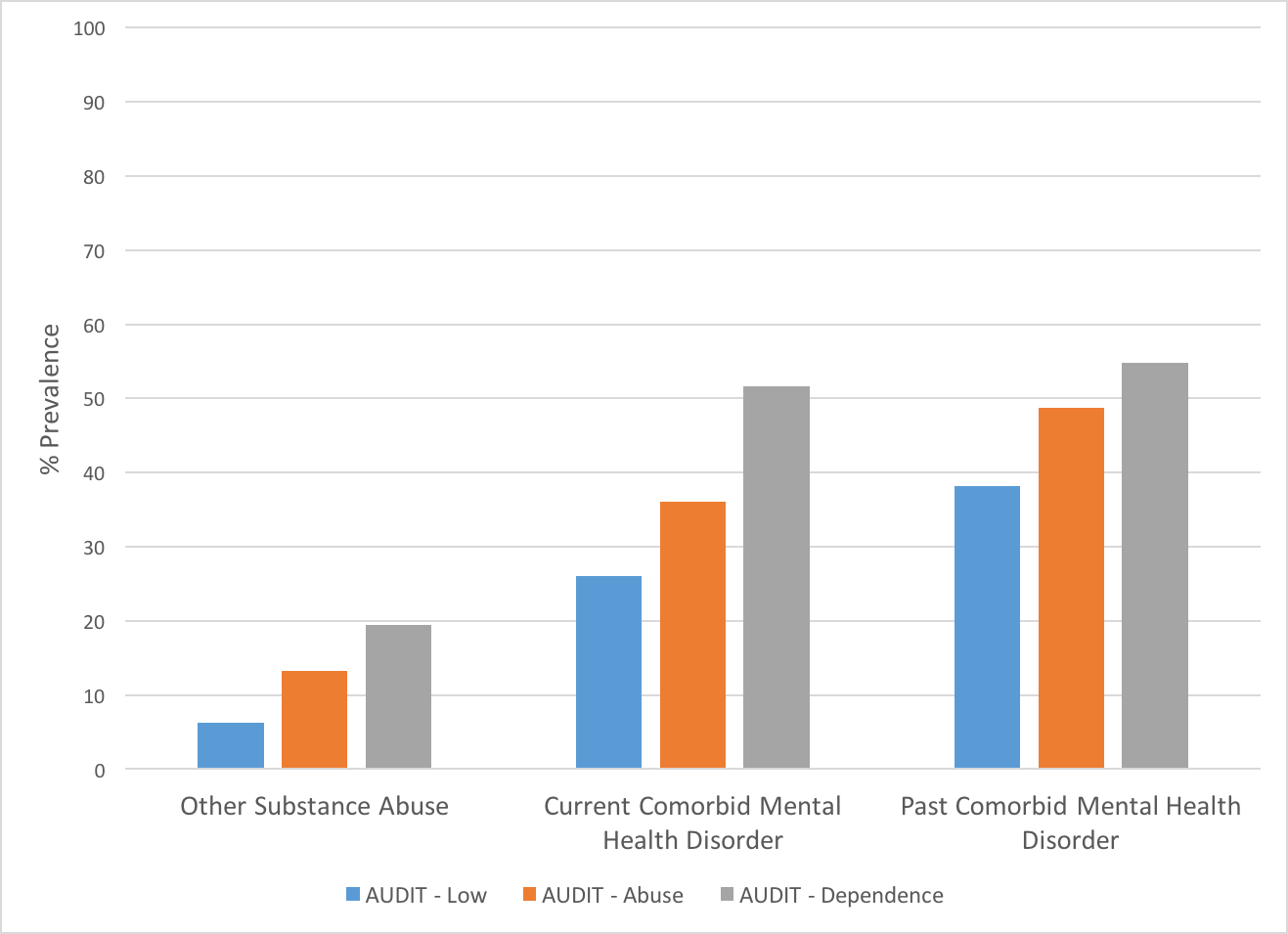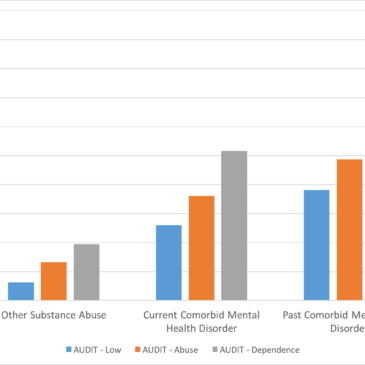Imagine turning to alcohol or other drugs in a desperate attempt to escape from the strain of a gambling problem. All too often, gambling disorder and substance use disorders co-occur in the general population. This week, as a part of our Special Series on Gambling Disorder, The DRAM reviews a study by Amparo del Pino-Gutierrez and colleagues that examines prevalence of alcohol use, and its relationship with the clinical aspects of gambling disorder (GD) among individuals in gambling treatment.
What was the research question?
How many treatment-seeking GD patients experience alcohol use disorders, and do GD patients with alcohol use disorder have more serious problems with gambling and mental health than other patients?
What did the researchers do?
Researchers used semi-structured clinical interviews, the Alcohol Use Disorders Identification Test (AUDIT), the South Oaks Gambling Screen (SOGS), the Diagnostic Questionnaire for Pathological Gambling according to the DSM-IV criteria, and other assessments to gather data from a clinical sample of 951 patients. All patients were diagnosed with GD and treated at a hospital in Barcelona, Spain. Based on their AUDIT scores, researchers divided the sample into three groups: low alcohol use (81%), alcohol abuse (15.8%), and alcohol dependence (3.3%).
What did they find?
Compared to patients who reported low alcohol use, those who reported alcohol abuse or dependence were more likely to have other mental health problems and to abuse drugs (see Figure). Patients with alcohol problems also had more gambling problem symptoms, and were more likely to report preferring to play slot machines over other types of games, such as bingo, lottery tickets, and cards. Alcohol use problems did not vary by age or sex.

Figure. Prevalence of other substance use and comorbid mental health disorders (past and present) among the 3 groups stratified by alcohol use behaviors. Figure adapted from Pino-Gutierrez et al. (2016). Click image to enlarge.
Why do these findings matter?
In this sample, alcohol abuse and dependence overlapped not only with drug abuse and mental health problems, but also with severity of gambling problems. These results suggest that treatment providers should assess and, if necessary, treat substance and mental health disorders among people seeking treatment for gambling problems in order to provide treatment that encompasses patients’ full range of problems. Such an integrated approach—offering patients combined treatment for two or more conditions by the same therapist or therapeutic team–might result in more favorable outcomes.
Every study has limitations. What were the limitations in this study?
This sample is made up of treatment seeking individuals with gambling disorder, so it does not represent the general population. Also, researchers assessed for gender differences within the sample; however, the sample was 90% male.
For more information:
If you or a loved one is concerned about their gambling, please visit and take our problem gambling screen here.
Learn more about Gambling Disorder Screening Day on March 14th 2017 and how you can help spread awareness by clicking here.
— Alec Conte
What do you think? Please use the comment link below to provide feedback on this article.




